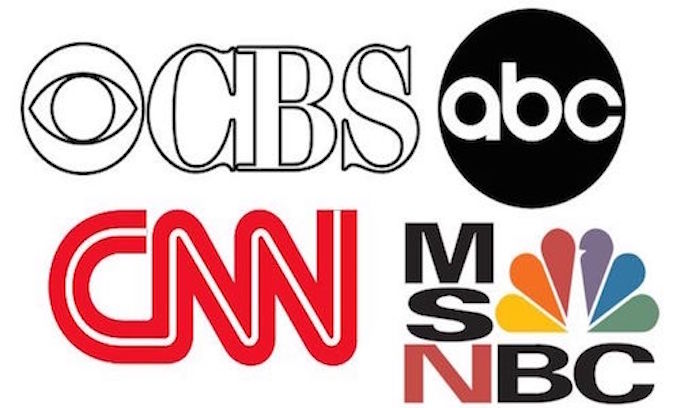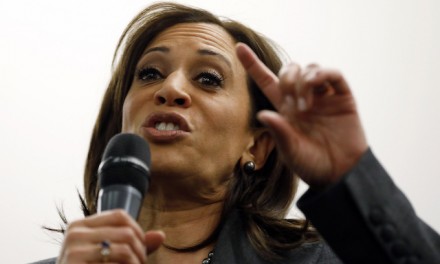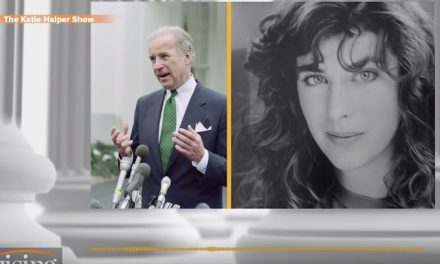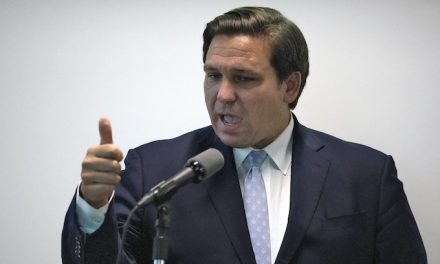The 48-hour build-up to President Trump’s first Oval Office address to the nation was chock-full of breathless hand-wringing in the media over whether they should air the speech in the first place.
“How can we air a speech that will be full of lies and distortions?” they asked each other on endless panel shows. “Maybe we should tape-delay the address so we can contextualize his statements and provide a thorough fact-check,” they insultingly suggested.
This is the Trump era. Fact-checking has moved into the mainstream. CNN’s 22-year-old production assistants are now responsible for running lower-third graphics designed to snark the president’s remarks so their dwindling audience can feel the smugness that comes with knowing they’ve received the revealed truth thereby forgoing any need to hear alternate views or challenge a belief.
But this week, something changed. This week, the media fact-checkers jumped the shark.
Within the first minute of Mr. Trump’s address, The Washington Post posted a political argument under the “Fact-Check” heading. Given that the post is time-stamped 9:02 p.m., the Post had to have been pre-written and published to time with the speech that had yet-to-be delivered.
“There is no new crisis at the border,” the “Live Fact Check” claimed. Politico issued a similar “not a crisis” “fact-check.”
Those are not fact-checks. The idea that an elected official is lying by calling a situation he is trying to resolve a “crisis” goes well beyond fact-checking and enters the realm of making a partisan political argument. Like other regurgitations of Democrat talking points, this is certainly a legitimate form of opinion journalism, but is not even remotely a dispassionate research project to verify facts.
Furthermore, the Post fact-check contradicted an article posted in their own publication just three days earlier, in which the Post’s own journalists described the border situation as a “humanitarian crisis.”
CBS News reportedly deleted a fact check that “corrected” Mr. Trump’s assertion that 1 in 3 women are sexually assaulted during the hazardous trek from Central America to the U.S. border. CBS claimed “Between 60 percent and 80 percent of female migrants traveling through Mexico are raped along the way, Amnesty International estimates.” Their fact check actually helped the president’s argument by correcting him for under-reporting the hazards of crossing the border illegally. The fact check was deleted with no explanation.
The number of false or misleading fact checks goes on and on and I suggest you read the great work of clear-headed journalist Mollie Hemingway who has cataloged a plethora of such examples.
However, none of these biased opinion pieces disguised as public-service fact checks would signal the tipping point for the form on their own. No, the “jump the shark” moment happened this week, because even liberal journalists seem to have had enough.
The Associated Press dared to fact check a claim from the Democrats’ response that Mr. Trump was responsible for the partial government shutdown.
“Democrats put the blame for the shutdown on Trump. But it takes two to tango. Trump’s demand for $5.7 billion for his border wall is one reason for the budget impasse. The Democrats refusal to approve the money is another,” the AP accurately wrote.
Democrats on Twitter were not pleased.
The AP tweet was “ratioed” as social media denizens say. This means that despite 8,000 retweets (largely interpreted as agreement) the tweet garnered over 24,000 comments (largely interpreted as arguments and disputes with the AP’s analysis).
None other than MSNBC’s Chris Hayes chimed in with this: “The fact-checking genre is fine and useful in certain circumstances but it is *woefully* under-theorized as an undertaking, which leads it into all kinds of weird, shoddy, and dubious territory.”
We agree, Mr. Hayes. But, where have you been?
The fact checkers with their infantile “Pinocchios” and “pants on fire” judgments have long fallen into the trap of arguing opinions, contexts, stipulations and, often, outright political hackery.
Another Washington Post fact check from the president’s speech as an example. “266,000 aliens arrested in the past two years: The number is right but misleading” was the Post’s headline.
That’s the problem in a nutshell. If your fact check consists of “this is true, but ” you are no longer checking a fact. You are engaged in an argument, and therefore, you’re guilty of misleading your readers — which, we thought, was the opposite of your job description.
• Larry O’Connor writes about politics and the media for The Washington Times and can be heard weekday afternoons on WMAL radio in Washington. Follow Larry on Twitter @LarryOConnor.
© Copyright (c) 2019 News World Communications, Inc.
—-
This content is published through a licensing agreement with Acquire Media using its NewsEdge technology.



















Recent Comments